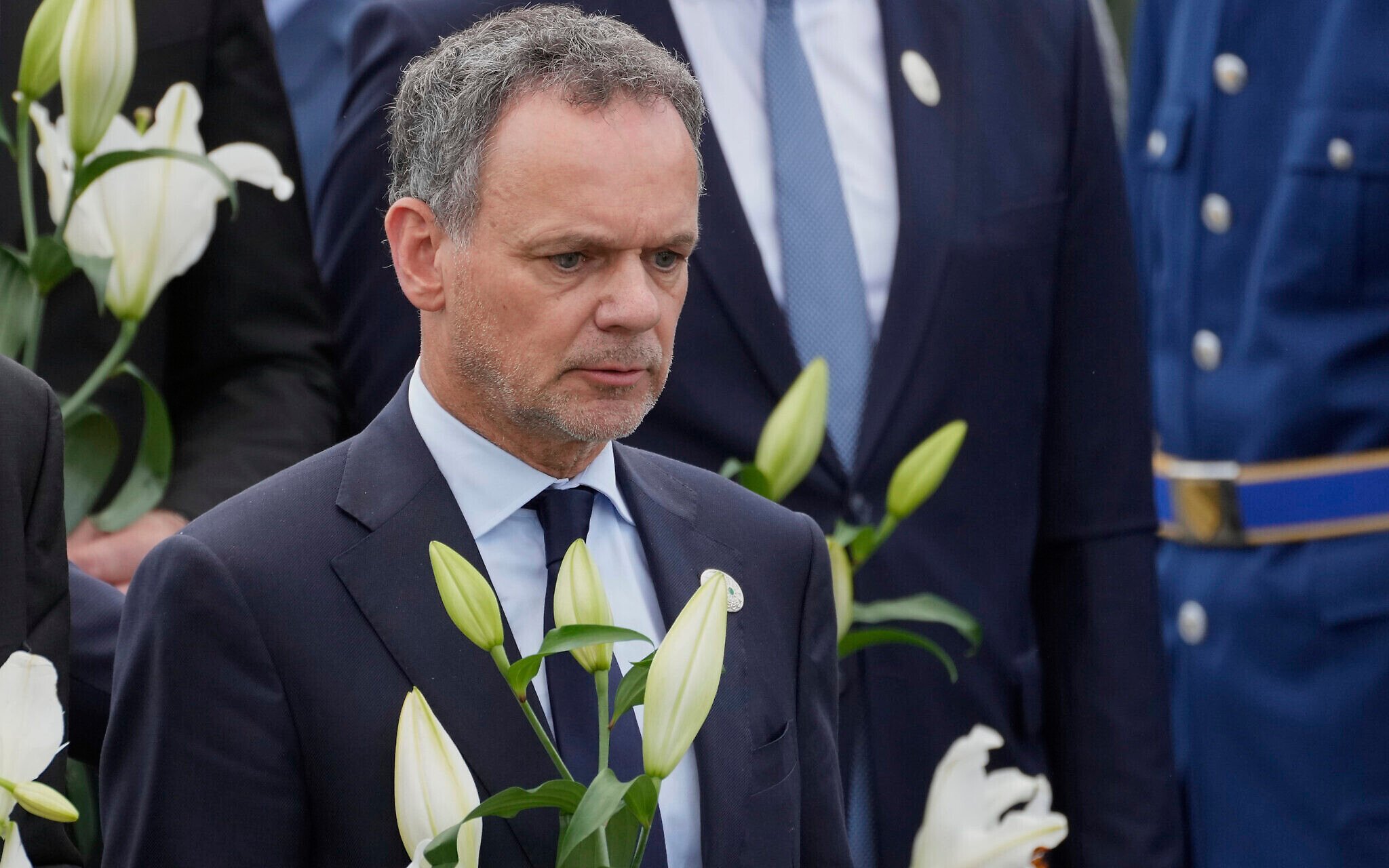The relatives of a dad who has been residing off the grid with his three kids in a secluded, forested location are urging him to return home. Officials and family members have shown serious worry regarding the safety and condition of both the children and the father, who has apparently avoided interacting with authorities for a long time. This continuing scenario has drawn interest from law enforcement, social services, and the wider community, emphasizing the difficulties associated with extended isolation in heavily wooded areas.
For several years, the father and his children have been living in conditions far removed from modern conveniences, relying on makeshift shelters, limited food sources, and the resources available in the surrounding environment. Reports suggest that the family has moved frequently within the forested area to avoid detection, making it difficult for authorities to establish contact or provide assistance. While the father’s motivations remain unclear, relatives emphasize that the children’s safety is the paramount concern.
The father’s family has consistently voiced their worries over the potential risks associated with long-term isolation. Living in remote wilderness areas can expose children to hazards such as extreme weather, limited access to medical care, food scarcity, and potential encounters with wildlife. In a public statement, relatives pleaded for him to prioritize the health and safety of the children and to consider returning home voluntarily, where they would have access to support, healthcare, and educational opportunities.
Family members also stress the emotional impact on the children, noting that prolonged separation from peers, educational institutions, and extended family can affect their social and psychological development. Advocates for the family hope that by making their appeal public, they may encourage the father to consider the well-being of his children and to reach a resolution that safeguards them while minimizing confrontation with authorities.
Police authorities encounter major challenges in finding the family because of the thickly wooded landscape and the family’s expertise in survival strategies. Locating people in isolated wilderness regions demands specific resources like aerial support, rescue teams, and collaboration among several organizations. Despite having these capabilities, the immense and intricate terrain makes it hard to maintain continuous operations, extending the duration of doubt.
Authorities emphasize that their primary objective is the safety of the children rather than punitive action against the father. While legal considerations may come into play, officials recognize the importance of balancing enforcement with measures that protect the vulnerable children from harm. This approach often involves negotiation, offering safe return options, and providing resources to facilitate reintegration into society.
Extended periods of isolation in the wilderness can have profound effects on both children and adults. Children may experience social deprivation, limited educational engagement, and psychological stress due to the lack of stable routines and interactions with peers. Adults living in prolonged isolation may face mental health challenges, heightened stress levels, and difficulties making rational decisions under pressure.
Specialists in the fields of child development and psychology emphasize that reuniting families in these situations necessitates thoughtful planning and the implementation of support systems. The process of reintegration might include therapy, medical check-ups, and educational programs to fill developmental voids and ensure the children’s holistic well-being. Officials and social services strive to handle the matter with care to avoid further trauma, while ensuring safety is prioritized.
The case has drawn public interest, with media outlets reporting on the father’s long-term evasion and the family’s ongoing efforts to reach him. Community members have expressed a mixture of concern, curiosity, and sympathy, recognizing the complexities of the situation. Social media coverage has amplified the family’s message, allowing relatives to reach a wider audience and appeal directly to the father’s sense of responsibility.
Public awareness plays a dual role: it can encourage voluntary return while also highlighting the potential dangers associated with prolonged survival in remote areas. Experts caution that extensive media attention can place additional stress on individuals involved, but it can also act as a catalyst for resolution if it motivates the father to consider alternatives that prioritize his children’s welfare.
While the father may face legal scrutiny for evading authorities, experts note that immediate concerns center on the children’s safety. Legal frameworks allow authorities to intervene when minors are at risk, but interventions are often designed to minimize confrontation and focus on providing support rather than punishment. Authorities may also offer assurances of limited legal repercussions in exchange for voluntary return, emphasizing cooperation and family reunification.
Las implicaciones legales se cruzan con preocupaciones sobre la seguridad, especialmente en relación con el acceso de los niños a atención médica, nutrición y educación. Garantizar que las necesidades básicas se satisfagan es prioritario, incluso antes de abordar las resoluciones legales. En estos casos, los tribunales, las agencias de protección infantil y las fuerzas del orden suelen trabajar juntas para crear planes completos para una reintegración segura y un monitoreo continuo.
Understanding the father’s motivations is complex. Some speculate that his decision to live in isolation may stem from distrust of authorities, personal beliefs about self-sufficiency, or concerns about the environment in which the children were living prior to going off the grid. Regardless of the reasoning, experts emphasize that solutions must address the practical realities of survival in the wilderness while encouraging a safe return.
Challenges for the father may include fear of prosecution, difficulty adjusting to societal norms after years of isolation, and concerns about providing for the family under new circumstances. Authorities and social services aim to address these challenges by offering pathways that reduce perceived threats, providing support for housing, employment, and healthcare, and ensuring a structured environment that prioritizes the children’s safety.
Negotiation and outreach remain central strategies for resolving the situation. Family members, social workers, and law enforcement continue to communicate in ways designed to build trust and reduce resistance. Emphasizing the well-being of the children, rather than focusing solely on legal consequences, may increase the likelihood of voluntary return.
Specialists propose that thorough planning, along with suitable resources and assistance, can aid in a more seamless shift from seclusion to organized living. This might involve provisional housing, psychological assistance, and educational programs to support the children in reintegrating safely. The aim is to combine empathy with practical measures, guaranteeing that safety and welfare are prioritized while minimizing disturbances to the family structure.
Incidents involving extended family seclusion in remote wilderness regions prompt broader considerations regarding the well-being of children, survival abilities, and the balance between individual freedoms and community safety. These situations are regularly used by officials and lawmakers to analyze deficiencies in support networks, outreach methods, and the resources accessible to families opting for unconventional ways of living.
Public discourse around the situation also highlights the tension between individual autonomy and societal responsibility. While adults may make personal choices about lifestyle and self-sufficiency, the welfare of children remains a societal concern. Experts emphasize that early intervention, community support, and access to resources are critical in preventing long-term risks associated with isolation.
The current circumstances of a father residing with his three kids in dense forest areas emphasize the intricate issues of balancing individual liberty and the well-being of children. The family’s public outreach acts as a poignant reminder of the human aspects at play, bringing to light the emotional, mental, and practical difficulties that both the children and their parent encounter.
Officials keep focusing on security and welfare, using approaches based on negotiation and assistance to motivate a voluntary comeback. At the same time, the wider society observes carefully, contemplating the difficulties of endurance, solitude, and the duties attached to being a parent. Achieving a secure solution necessitates collaboration, empathy, and an emphasis on safeguarding those most at risk, especially the children, while dealing with the practicalities of life away from the grid.



